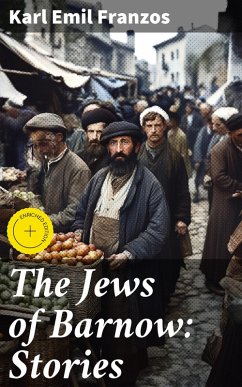In "The Jews of Barnow: Stories," Karl Emil Franzos presents a poignant collection of narratives that illuminate the lives, struggles, and cultural nuances of Jewish communities in the fictional town of Barnow, situated within the socio-political landscape of 19th-century Eastern Europe. Through a blend of realism and rich character development, Franzos captures the complexities of Jewish identity, exploring themes of faith, resilience, and societal prejudice. Written in a prose style that balances lyrical eloquence with deep emotional resonance, the stories serve as both a reflection of the socio-cultural environment of the time and an engaging literary tapestry that brings the characters' vivacity to life, challenging the reader to empathize with their plight. Karl Emil Franzos, a Jewish writer born in 1848 in Czernowitz, was deeply influenced by his own experiences of cultural duality and the struggles faced by Jewish communities. His upbringing in a region rife with anti-Semitism and his later migration to more liberal Western territories informed his literary vision, driving him to portray the rich tapestry of Jewish life amidst adversity. Franzos's works often grapple with the intersections of fate, tradition, and modernity, presenting a critical voice on Jewish existence in a transforming world. This collection is highly recommended for readers interested in Jewish literature, cultural history, and the narratives that shape identity amidst turmoil. Through these stories, Franzos not only documents a lost world but also invites contemporary readers to reflect on their own perceptions of community and belonging, making it an essential addition to the literary canon.
Dieser Download kann aus rechtlichen Gründen nur mit Rechnungsadresse in A, B, BG, CY, CZ, D, DK, EW, E, FIN, F, GR, H, IRL, I, LT, L, LR, M, NL, PL, P, R, S, SLO, SK ausgeliefert werden.









